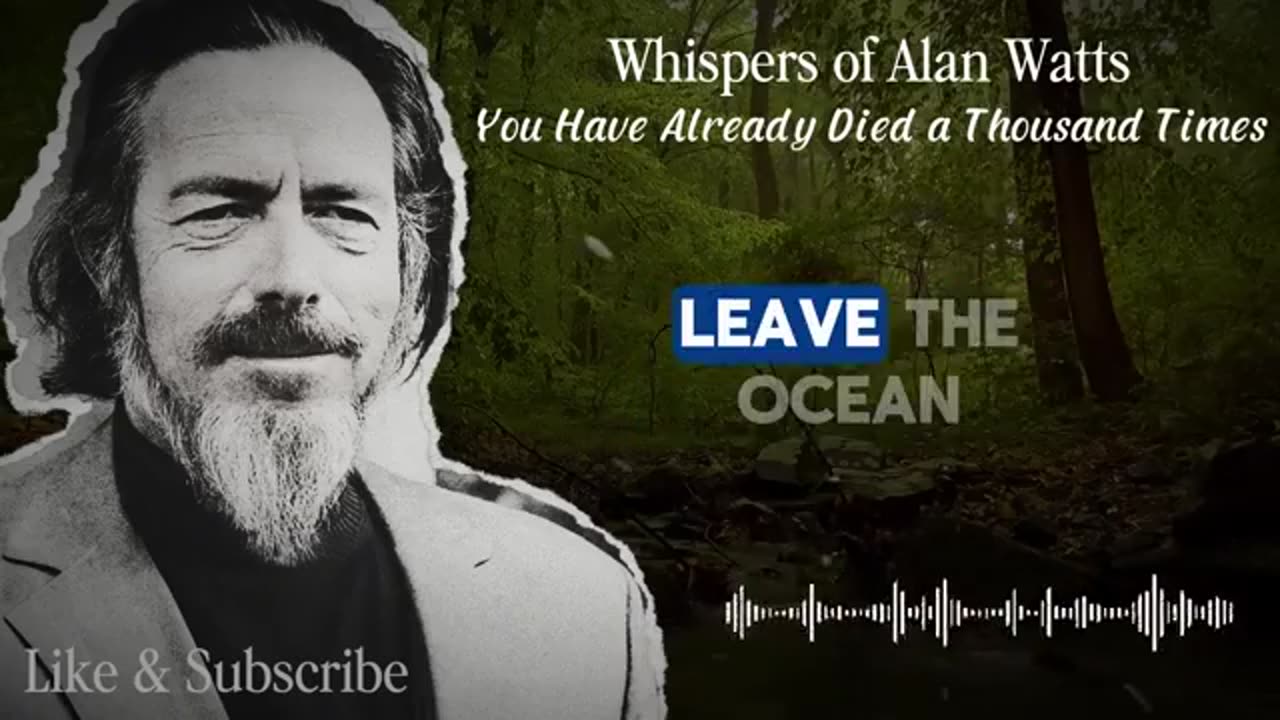Premium Only Content

You Have Already Died a Thousand Times – Alan Watts and Time
Source:
https://www.youtube.com/watch?v=EklsH3JBV3k&list=TLPQMjMwOTIwMjU-isiDtD2G6g&index=1
This video, "You Have Already Died a Thousand Times – Alan Watts and Time," explores the philosophical concept of death and time, suggesting that our understanding of both is often a "magnificent hallucination."
Key takeaways from the video include:
Cyclical Nature of Time: The video argues against the linear perception of time, proposing instead that time is cyclical, much like seasons, planetary orbits, and heartbeats. It suggests that this linear concept is an "invention" rather than a natural phenomenon.
Death as Transformation: Death is presented not as an end, but as a natural transformation, an essential part of the "magnificent game called life." It highlights that life and death are dance partners, and one cannot exist without the other, similar to a wave needing both a crest and a trough.
Constant Dying and Rebirth: The video posits that we are constantly dying and being reborn in every moment. This is illustrated by the continuous replacement of cells in our bodies and the changing nature of our thoughts, beliefs, and feelings over time.
Illusion of Continuity: Memory is described as a "trickster" that creates the illusion of a continuous self, even though our physical and mental selves are constantly changing. The true self is suggested to be awareness itself, which persists beyond the changing content of experience.
Life as Play (Leela): Drawing on the Hindu concept of "Leela," the video suggests that the universe is a "cosmic game" played out of delight. In this view, death is simply part of the game, a transformation in the dance of existence, and the temporary nature of life makes it precious.
Eternal Return and Practice of Dying: The concept of eternal return is introduced as a perspective, inviting us to live in a way we'd be willing to repeat eternally. The video also likens sleep to a "little death," a daily practice for the greater transition that will eventually come.
The overarching message encourages viewers to approach death not with fear, but with curiosity and openness, recognizing that our true nature is vast and mysterious, and was "never born and so can never die."
-
 1:34:52
1:34:52
Badlands Media
14 hours agoBaseless Conspiracies Ep. 156: The ADL Files – Spies, Lies & the Leo Frank Legacy
80.6K36 -
 2:04:29
2:04:29
Inverted World Live
9 hours ago700 Scientists and Faith Leaders Warn About Super-Intelligent AI, "Time is Running Out" | Ep. 130
78.4K12 -
 2:50:47
2:50:47
TimcastIRL
8 hours agoFOOD STAMPS OVER, Ending Nov 1, Food RIOTS May Spark Trump INSURRECTION ACT | Timcast IRL
225K116 -
 4:46:23
4:46:23
Drew Hernandez
18 hours agoCANDACE OWENS CALLS CHARLIE KIRK STAFF INTO QUESTION?
42.6K45 -
 47:03
47:03
Barry Cunningham
11 hours agoPRESIDENT TRUMP MEETS WITH THE PRIME MINISTER OF JAPAN!! AND MORE NEWS!
57.6K30 -
 1:18:29
1:18:29
Flyover Conservatives
1 day agoThe Dollar Devaluation Playbook: Gold, Bitcoin… and the “Genius Act” - Andy Schectman | FOC Show
48.8K5 -
 7:10:35
7:10:35
SpartakusLIVE
10 hours agoWZ Tonight || Battlefield 6 BATTLE ROYALE Tomorrow!
51.4K -
 3:25:11
3:25:11
megimu32
8 hours agoON THE SUBJECT: Halloween Nostalgia! LET’S GET SPOOKY! 👻
38K1 -
 1:24:56
1:24:56
Glenn Greenwald
10 hours agoThe Unhinged Reactions to Zohran's Rise; Dems Struggle to Find a Personality; DHS, on Laura Loomer's Orders, Arrests UK Journalist and Israel Critic | SYSTEM UPDATE #538
127K103 -
 4:36:02
4:36:02
Spartan
10 hours agoBack from worlds. Need a short break from Halo, so single player games for now
27.2K